IBM Infoprint 1125 & 1125n (4525-001 & 4525-N01)
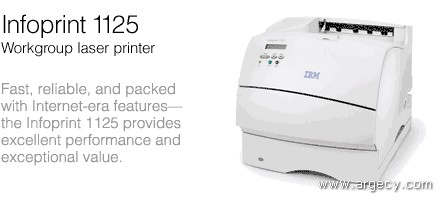
IBM 4525 (1125) InfoPrint Family
The Infoprint 1125 is a powerful laser printer that helps optimize productivity and provide seamless connectivity.
- 1200 x 1200 dpi, 25 ppm, provides superb performance at an exceptional price
- Less than 9 seconds to first page print and smart implementation of networking options help ensure high speed communications and broad compatibility
- Easily expandable with a high capacity input option, bringing maximum input up to 3,850 sheets
- ImageQuick option ensures perfect printing of Web and Intranet-based images as well as HTML, PDF, TIFF and other popular formats directly to your IBM Infoprint 1125
| Toner Cartridge | 28p2492 MICR Toner for 1120 1125 (4520 4525) New 28p2492 MICR 15K Page yield Compatible (New) $214.00 |
| Fuser Unit | 56P9104 IBM Fuser 1120 1125 Fully refurbished with 90-day warranty 56P9104 Retired, no longer available: Contact for alternatives |
| Fuser Maintenance Kit | 56P1036 IBM Fuser Maintenance Kit 1120 1125 Fully refurbished with 90-day warranty 56P1036 Advanced Exchange Retired, no longer available: Contact for alternatives 39V2632 Fuser Maintenance Kit 1120 1125 Fully refurbished with 90-day warranty 39V2632 Advanced Exchange $170.00 |
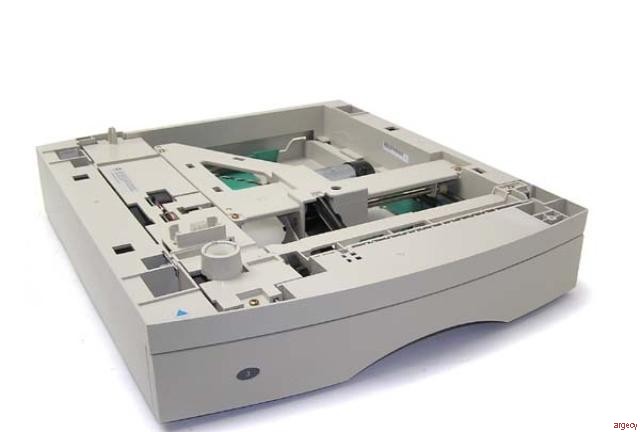 (#4505) 250-Sheet Drawer | |
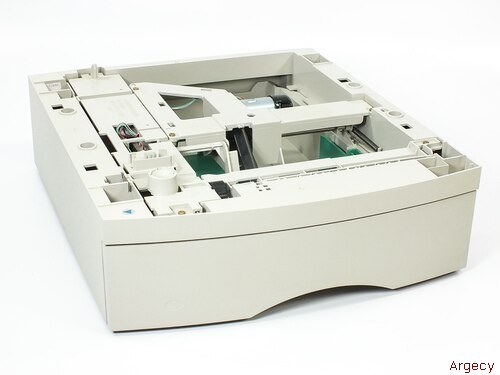 (#4506) 500-Sheet Drawer | |
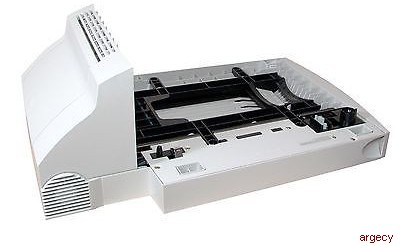 (#4401) 250-Sheet Duplex Unit | 28P1978 Duplexer Fully refurbished with 90-day warranty 28P1978 Retired, no longer available: Contact for alternatives 53p7946 500-Sheet Duplexer Fully refurbished with 90-day warranty 53p7946 28P1978 Retired, no longer available: Contact for alternatives |
 (#4403) 250-Sheet Duplex Unit | 53p7946 500-Sheet Duplexer New 53P7946 28P1978 (New) Retired, no longer available: Contact for alternatives 28P1978 Duplexer Fully refurbished with 90-day warranty 28P1978 Retired, no longer available: Contact for alternatives |
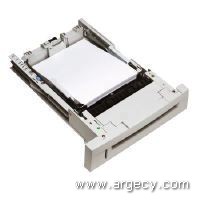 (#4501) 250-Sheet Tray | |
 (#4502) 500-Sheet Tray | 28P1980-LOCK 500-Sheet Locking Tray New 28P1980_LOCK (New) Retired, no longer available: Contact for alternatives |
| (#4504) 400-sheet Universally Adjustable Tray (UAT) | |
| (#4504) 250-sheet Universally Adjustable Tray (UAT) | |
 (#4511) Envelope Feeder | |
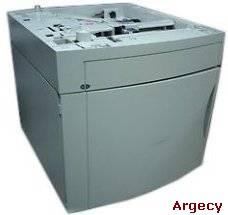 (#4520) 2,000-Sheet Drawer for Letter | |
 (#4521) 2,000-Sheet Drawer for A4 | |
 650-Sheet output stacker | |
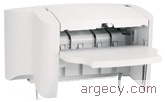 Staplesmart finisher | |
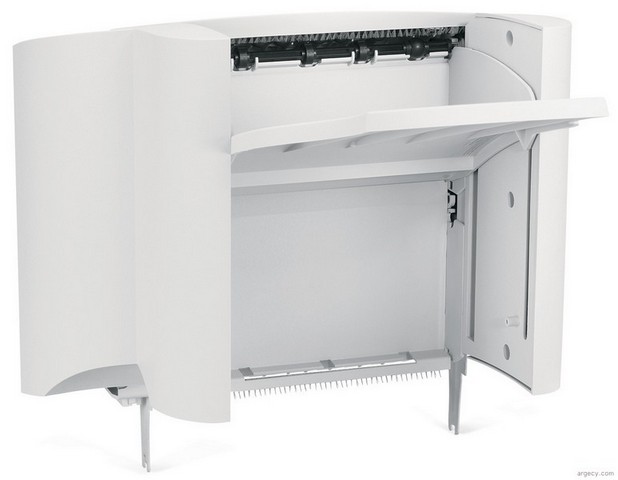 Output expansion | |
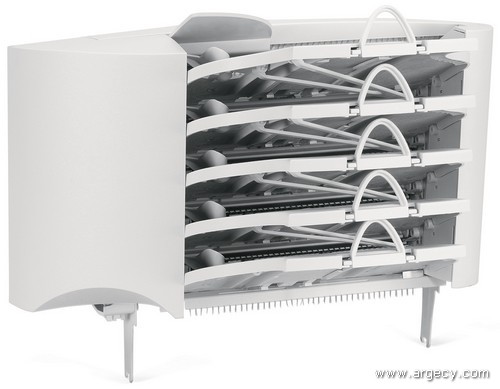 Mailbox | |
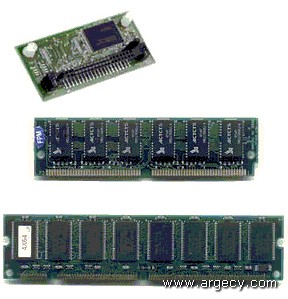 IPDS | |
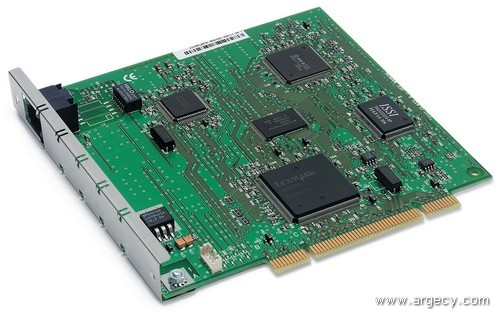 (#4120) Token Ring attachment | 28P1835 Token Ring Fully refurbished with 90-day warranty 28P1835 Retired, no longer available: Contact for alternatives |
| (#4121) Token Ring-3 port | |
 (#4161) Ethernet 10BaseT/2 | |
(#4162) Ethernet 10BaseT/100BaseTX | |
(#4163) Ethernet 10BaseT/100BaseTX-1 port | |
| (#4164) Ethernet 10BaseT/100BaseTX-3 port | |
(#4165) Ethernet 10/100BaseTX/10Base2-1 port | |
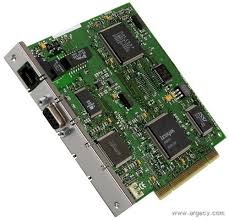 (#4141) Coax/Twinax Adapter for SCS | |
 (#4130) Tri-Port Adapter | |
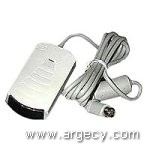 | |
| (#4133) Parallel/USB Interface Card | |
 (#4304) 4 MB Memory DIMM | |
 (#4308) 8 MB Memory DIMM | |
 (#4316) 16 MB Memory DIMM | |
 (#4332) 32 MB Memory DIMM | |
 (#4364) 64 MB Memory DIMM | |
 (#4390) 128 MB Memory DIMM | |
 (#4030) 2 MB Flash DIMM | |
 (#4032) 4 MB Flash DIMM | |
 (#4034) 8 MB Flash DIMM | |
 (#4036) 16 MB Flash DIMM | |
| (#4329) 5+ GB Hard Disk with Adapter | |
 (#4821) ImageQuick** Card Feature | |
 (#4870) Bar Code Card Feature | |
28P1862 Optra Forms Software New 28P1862 (New) Retired, no longer available: Contact for alternatives | |
28P1863 Optra Forms Director Software New 28P1863 (New) Retired, no longer available: Contact for alternatives | |
 | |
 | |
 | |
 | |
 | |
| 28P1869 Optra Forms** 2-Key Security | |
| 28P1870 Optra Forms** 3-Key Security | |
| (#4180) 10 Ft. Parallel Cable | |
| (#4181) 20 Ft. Parallel Cable | |
| (#4135) Parallel 1284 C-B Adapter | |
| (#4183) 50 Ft. Serial Cable | |
| (#4184) 2-meter USB Cable | |
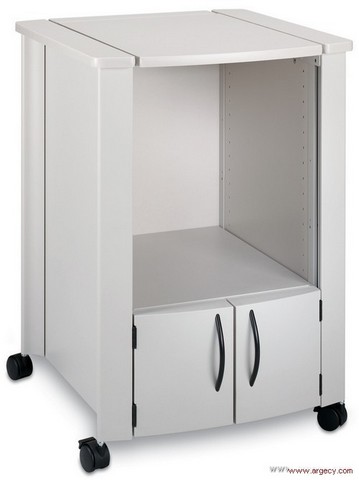 53P7950 Printer Stand | |
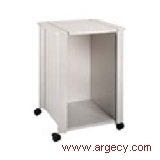 4534 53P7951 Printer Stand | |
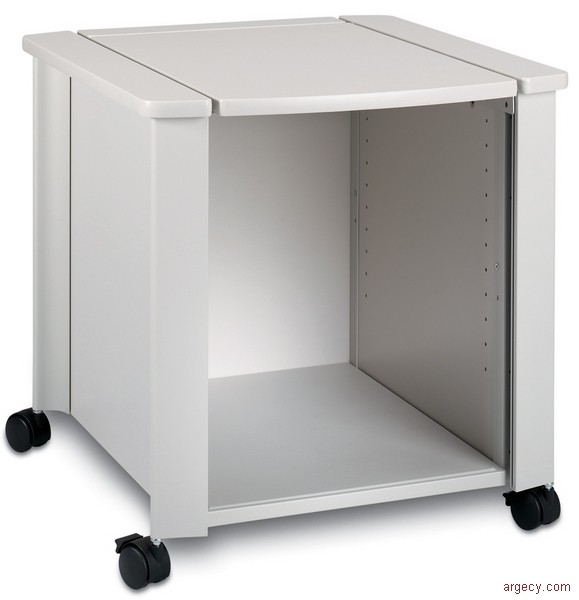 4535 53P7952 Printer Stand | |
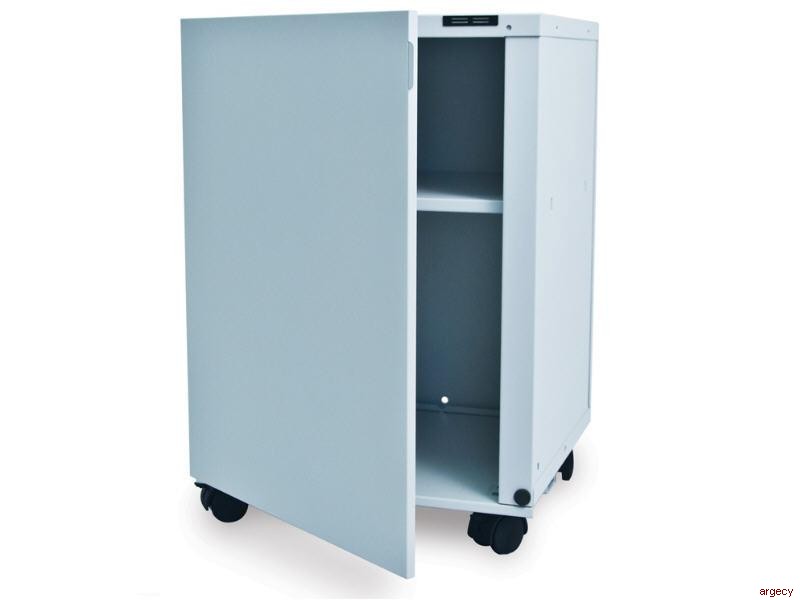 QQC2025 Printer Stand |
The IBM 4525 is the Infoprint 1125, an excellent printing solutions for small and medium workgroups. These printers offer tremendous value with their vast networking capabilities, all for an affordable price.
Highlights
Infoprint 1125 (up to 25 PPM) - a faster yet still economical monochrome laser printer with superb reliability and a smart implementation of networking options that will appeal to small and medium workgroups.
This printer also provides:
High-speed printing for a small-footprint desktop printer
Fast Ethernet, Token-Ring, Twinax, and Coax networking capability
Flexible paper input options with a capacity of over 3,000 sheets
A duplex option for two-sided printing
Description
The Infoprint 1120 and 1125 are 20 and 25 pages-per-minute (respectively) monochrome laser printers. They supply high-speed output, a fast processor (200 MHz minimum), a fast first page out time (9 seconds), and Token-Ring, Ethernet, Twinax, Coax connectivity options that are competitively priced.
These printers also provide the option for Intelligent Printer Data Stream (IPDS) print capability, making them the perfect fit for IBM AS/400 environments. With an optional 2,000-sheet high-capacity input drawer, and high-capacity toner cartridge, they are excellent solutions for customers who wish to minimize user intervention.
Both printers come with a one year, exchange warranty, which provides the quickest available replacement if one is needed and fast technical support solutions to get you up and running right away. The low acquisition cost and highly flexible networking options make these printers ideal for a growing business.
The IBM Infoprint 1120 is an A4/Letter monochrome laser printer with print speed of up to 20 pages per minute.
Infoprint 1120 media handling capabilities include:
One 250-sheet input tray and one 100-sheet auxiliary tray standard, for a 350-sheet standard input capacity
Three optional 500-sheet drawers and one optional 2,000-sheet drawer, for a maximum 3,850-sheet input capacity
Optional duplex capability for two-sided printing
250-sheet standard output capacity
The IBM Infoprint 1125 is an A4/Letter monochrome laser printer with a print speed of up to 25 pages per minute.
Infoprint 1125 media handling capabilities include:
One 500-sheet input trays and one 100-sheet auxiliary tray standard, for a 600-sheet standard input capacity
Three optional 500-sheet drawers and one optional 2,000-sheet drawer for a maximum 4,100-sheet input capacity
Optional duplex capability for two-sided printing
500-sheet standard output capacity
Usage Rates
The maximum monthly usage is as follows:
100,000 impressions for the Infoprint 1120
120,000 impressions for the Infoprint 1125
IBM does not recommend printing to the monthly maximum on a consistent basis.
Infoprint 1120 and 1125 Models
Infoprint 1120
The Infoprint 1120 printer has two base models, two duplex models, two network models, and two duplex/network models. The base models include the printer with 8 MB memory. Model 001 is the low voltage model and Model 002 is the high voltage model.
The duplex models include a 250-sheet duplex option and 8 MB of memory. Model D01 is the low voltage model and Model D02 is the high voltage model.
The network models include a 10/100BaseTX Fast Ethernet card and 16 MB of memory. Model N01 is the low voltage model and Model N02 is the high voltage model.
The duplex/network models include a 10/100BaseTX Fast Ethernet card, 16 MB of memory (same as the network models) and the duplex option. Model DN1 is the low voltage model and Model DN2 is the high voltage model.
Infoprint 1125
The Infoprint 1125 printer has two base models, two network models, and two duplex/network models. The base models include the printer with 16 MB memory. Model 001 is the low voltage model and Model 002 is the high voltage model.
The network models include a 10/100BaseTX Fast Ethernet card and 32 MB of memory. Model N01 is the low voltage model and Model N02 is the high voltage model.
The duplex/network models include a 10/100BaseTX Fast Ethernet card, 32 MB of memory (same as network models) and the duplex option. Model DN1 is the low voltage model and Model DN2 is the high voltage model.
High-Performance Controller
The Infoprint 1120 controller has a 200 MHz PMC-Sierra RM5231A processor.
The Infoprint 1125 controller has a 250 MHz PMC-Sierra RM5231A processor.
Both printers come with robust data stream support with PCL 6, PostScript 3, and PPDS standard. IPDS is available as an option.
Memory for Infoprint 1120:
Base printer models and duplex models have 8 MB SDRAM standard. The network and duplex/network models have 16 MB SDRAM standard.
The standard memory is soldered on the controller board. There are two memory slots available for SDRAM memory and flash memory. The controller supports a maximum of 264 MB of SDRAM memory (total of soldered and memory slots) for base and duplex models and 272 MB of SDRAM memory (total of soldered and memory slots) for network and duplex/network models.
Memory for Infoprint 1125:
Base printer models have 16 MB SDRAM standard. The network and duplex/network models have 32 MB SDRAM standard.
The standard memory is soldered on the controller board. There are two memory slots available for SDRAM memory and flash memory. The controller supports a maximum of 272 MB of SDRAM memory (total of soldered and memory slots) for base models and 288 MB of SDRAM memory (total of soldered and memory slots) for network and duplex/network models.
Printer System Attachment Interfaces:
Infoprint 1120 and 1125 base printer models, and the duplex models of Infoprint 1120 have an IEEE 1284 Parallel interface with a Type B connector and a USB interface.
Infoprint 1120 and 1125 Network printer models, and the duplex/network models have a USB interface and integrated 10/100BaseTX Fast Ethernet interface.
Print Quality
Both Infoprint 1120 and 1125 support the following print resolutions:
300 x 300 dpi (dots per inch)
600 x 600 dpi (default resolution)
1200 Image Quality (default driver resolution)
1200 x 1200 dpi
The toner darkness setting offers ten user-selectable settings to balance print darkness and toner savings. The higher the setting, the darker the print. Within the range of print darkness settings, up to 50% toner savings can be realized from a setting of one. The toner darkness setting is available through the operator panel under the Print Quality menu and also accessible from the print driver.
Font Support for Infoprint 1120 and Infoprint 1125
Both printers' resident fonts include support for following:
Emulation # of Scalable Fonts # of Bitmapped Fonts
--------- ------------------- --------------------
PCL 6 84 2
PostScript 156 0
PPDS 39 5
Models
Model Summary Matrix
1125
Model Type Voltage
----- -------------- -------
001 Base Low
N01 Network Low
DN1 Network/Duplex Low
Technical Description
Physical Specifications Operating Environment Limitations
Hardware Requirements Software Requirements
Infoprint 1125
Performance Specifications
The maximum print speeds are shown in the following table. Actual performance depends on:
Interface to the host (serial, parallel, network)
Host system and application
Network complexity and traffic
Page complexity and content
Certain printer options installed and selected
Printer memory
Printer resolution
Media size, media type setting and tray source
Infoprint 1125
300,600 dpi, 1200 dpi
Media 1200 IQ
------------------ ------------ --------
Simplex Printing (pages per minute)
Letter 25.2 ppm 12.1 ppm
A4 23.8 ppm 11.4 ppm
Legal 20.3 ppm 9.7 ppm
Duplex Printing (sides per minute)
Letter 22.1 spm 11.0 spm
A4 21.2 spm 10.7 spm
Legal 18.5 spm 9.3 spm
Note: dpi = dots per inch.
Note: 1200IQ = 1200 Image Quality resolution.
First Copy Times are shown in the following table.
Infoprint 1125
Printer Mode Time (seconds)
---------------- --------------
From Standby <9
From Power Saver 45
Note: First Copy time is defined as the elapsed time when hitting enter on the PC to the page exiting to the output bin. Paper is picked from the primary tray and paper exits to the primary output bin. Media is letter size paper printed in 300 and 600 dpi simplex printing.
Usage Rates
The maximum monthly usage of Infoprint 1125 is 120,000 impressions. IBM does not recommend printing to this monthly maximum on a consistent basis.
Print Quality
Both Infoprint 1125 support the following print resolutions:
300 x 300 dpi (dots per inch)
600 x 600 dpi (default resolution)
1200 Image Quality (default driver resolution)
1200 x 1200 dpi
The Toner Darkness setting offers ten user selectable settings to balance print darkness and toner savings. The higher the setting the darker the print. Within the range of print darkness settings up to 50% toner savings can be realized from a setting of one. The Toner Darkness setting is available through the operator panel under the Print Quality menu and also accessible from the print driver.
Print Area
The Infoprint 1125 printable area is limited to within 4.2 mm (0.167 in.) of top and bottom edges of the media and to within 6.25 mm (0.25 in.) of the left or right edges of the media. Any information placed outside this specified printable area will not print.
Data Streams
The Infoprint 1125 supports the following data streams:
PostScript Level 3 Emulation
Hewlett-Packard Company PCL 6 Emulation
Optional IPDS (Intelligent Printer Data Stream)
PPDS (Page Printer Data Stream) Migration Tool
FONTS
Fonts and Symbol Sets
The Infoprint 1125 resident fonts include support for languages that use the following character sets:
Latin 1 (US, Western Europe, etc)
Latin 2 (Eastern Europe)
Latin 5 (Turkish)
Latin 6 (Baltic)
Cyrillic
Greek
Japanese (Katakana characters only)
There are 83 symbol sets in the PCL 6 emulation to support all the languages that use these characters. The symbol set names are listed below. Not all symbol sets are supported by all fonts. Refer to the Technical Reference manual or use the printer operator panel to find which symbol sets are supported by each font.
The InfoPrint 1125 will have UTF-8 code support standard. UTF-8 code is a particular way in which fonts are accessed. UTF-8 is required for SAP printing and had previously only been available in the Barcode option card. Moving this function standard in the printers allows for SAP support out of the box. UTF-8 is available for PCL and PostScript fonts.
The following table lists the number of fonts available in each emulation. The typeface names are shown below.
Emulation # of Scalable Fonts # of Bitmapped Fonts
--------- ------------------- --------------------
PCL 6 84 2
PostScript 156 0
PPDS 39 5
The fonts in the PCL emulation are compatible with the fonts in the HP4500 (HP trademark) and include four additional fonts and many extra symbol sets to support extra languages and applications. The fonts in the PostScript emulation are compatible with Adobe PostScript 3 and include 20 additional fonts.
Additional fonts can be downloaded to the printer RAM or optional Flash DIMM or Hard Disk. PCL emulation supports both scalable and bitmapped downloadable fonts. PostScript emulation supports only downloadable scalable fonts, and PPDS emulation supports only downloadable bitmapped fonts. Font cards and font cartridges are not supported.
Included on the CD-ROM shipped with the printer are a variety of downloadable fonts for Hebrew and Arabic and additional support for the Euro currency character.
Also included on the CD-ROM is the FontVision Font Management utility and screen fonts to match the resident scalable fonts. An additional 48 TrueType fonts are available on the IBM Web site when a customer registers the printer.
PostScript 3 Fonts
Note: Font order is partially alphabetical and partially functional.
PostScript 3 Font Names
156 scalable fonts
------------------
AlbertusMT
AlbertusMT-Italic
AlbertusMT-Light
AntiqueOlive-Roman
AntiqueOlive-Italic
AntiqueOlive-Bold
AntiqueOlive-Compact
ArialMT
Arial-ItalicMT
Arial-BoldMT
Arial-BoldItalicMT
AvantGarde-Book
AvantGarde-BookOblique
AvantGarde-Demi
AvantGarde-DemiOblique
Bookman-Light
Bookman-LightItalic
Bookman-Demi
Bookman-DemiItalic
Coronet-Regular
Courier
CourierPS
Courier
Courier-Oblique
Courier-Bold
Courier-BoldOblique
CourierPS Bold Oblique
Courier-BoldOblique
Garamond-Antiqua
Garamond Halbfett
Garamond-Kursiv
Garamond-KursivHalbfett
Helvetica-Light
Helvetica-LightOblique
Helvetica-Black
Helvetica-BlackOblique
Helvetica
Helvetica-Oblique
Helvetica-Bold
Helvetica-BoldOblique
Helvetica-Narrow
Helvetica-Narrow-Oblique
Helvetica-Narrow-Bold
Helvetica-Narrow-BoldOblique
Intl-CG-Times
Intl-CG-Times-Italic
Intl-CG-Times-Bold
Intl-CG-Times-BoldItalic
Intl-Univers-Medium
Intl-Univers-MediumItalic
Intl-Univers-Bold
Intl-Univers-BoldItalic
Intl-Courier
Intl-Courier-Oblique
Intl-Courier-Bold
Intl-Courier-BoldOblique
LetterGothic
LetterGothic-Slanted
LetterGothic-Bold
LetterGothic-BoldSlanted
Marigold
NewCenturySchlbk-Roman
NewCenturySchlbk-Italic
NewCenturySchlbk-Bold
NewCenturySchlbk-BoldItalic
Optima
Optima-Bold
Optima-BoldItalic
Optima-Italic
Palatino-Roman
Palatino-Italic
Palatino-Bold
Palatino-BoldItalic
Symbol
Times-Roman
Times-Italic
Times-Bold
Times-BoldItalic
TimesNewRomanPSMT
TimesNewRomanPS-ItalicMT
TimesNewRomanPS-BoldMT
TimesNewRomanPS-BoldItalicMT
Univers
Univers-Oblique
Univers-Bold
Univers-BoldOblique
Univers-Condensed
Univers-CondensedOblique
Univers-CondensedBold
Univers-CondensedBoldOblique
Wingdings-Regular
ZapfChancery-MediumItalic
ZapfDingbats
Univers-Extended
Univers-ExtendedObl
Univers-BoldExt
Univers-BoldExtObl
Univers-Light
Univers-LightOblique
Clarendon
Clarendon-Light
Clarendon-Bold
Helvetica-Condensed
Helvetica-Condensed-Bold
Helvetica-Condensed-BoldObl
Helvetica-Condensed-Oblique
StempelGaramond-Bold
StempelGaramond-BoldItalic
StempelGaramond-Italic
StempelGaramond-Roman
Apple-Chancery
Chicago
Geneva
Monaco
NewYork
Oxford
Taffy
MonaLisa-Recut
Candid
Bodoni
Bodoni-Italic
Bodoni-Bold
Bodoni-BoldItalic
Bodoni-Poster
Bodoni-PosterCompressed
CooperBlack
CooperBlack-Italic
Copperplate-ThirtyTwoBC
Copperplate-ThirtyThreeBC
Eurostile
Eurostile-Bold
Eurostile-ExtendedTwo
Eurostile-BoldExtendedTwo
GillSans
GillSans-Italic
GillSans-Bold
GillSans-BoldItalic
GillSans-Condensed
GillSans-BoldCondensed
GillSans-Light
GillSans-LightItalic
GillSans-ExtraBold
Goudy
Goudy-Italic
Goudy-Bold
Goudy-BoldItalic
Goudy-ExtraBold
HoeflerText-Regular
HoeflerText-Italic
HoeflerText-Black
HoeflerText-BlackItalic
HoeflerText-Ornaments
JoannaMT
JoannaMT-Italic
JoannaMT-Bold
JoannaMT-BoldItalic
LubalinGraph-Book
LubalinGraph-BookOblique
LubalinGraph-Demi
LubalinGraph-DemiOblique
PCL 6 Fonts
Note: Font order is partially alphabetical and partially functional.
PCL 6 Font Names
84 scalable fonts
-----------------
Albertus Medium
Albertus Extra Bold
Antique Olive
Antique Olive Italic
Antique Olive Bold
Arial
Arial Italic
Arial Bold
Arial Bold Italic
ITC Avant Garde Book
ITC Avant Garde Book Oblique
ITC Avant Garde Demi
ITC Avant Garde Demi Oblique
ITC Bookman Light
ITC Bookman Light Italic
ITC Bookman Demi
ITC Bookman Demi Italic
Clarendon Condensed Bold
Coronet
CourierPS
CourierPS Oblique
CourierPS Bold
CourierPS Bold Oblique
CG Omega
CG Omega Bold
CG Omega Italic
CG Omega Bold Italic
Garamond Antiqua
Garamond Halbfett
Garamond Kursiv
Garamond Kursiv Halbfett
Helvetica Light
Helvetica Light Oblique
Helvetica Black
Helvetica Black Oblique
Helvetica
Helvetica Italic
Helvetica Bold
Helvetica Bold Italic
Helvetica Narrow
Helvetica Narrow Italic
Helvetica Narrow Bold
Helvetica Narrow Bold Italic
CG Times
CG Times Italic
CG Times Bold
CG Times Bold Italic
Univers Medium
Univers Medium Italic
Univers Bold
Univers Bold Italic
Courier
Courier Italic
Courier Bold
Courier Bold Italic
Letter Gothic
Letter Gothic Italic
Letter Gothic Bold
Marigold
Century Schoolbook Roman
Century Schoolbook Italic
Century Schoolbook Bold
Century Schoolbook Bold Italic
Palatino Roman
Palatino Italic
Palatino Bold
Palatino Bold Italic
SymbolPS
Symbol
Times Roman
Times Italic
Times Bold
Times Bold Italic
Times New Roman
Times New Roman Italic
Times New Roman Bold
Times New Roman Bold Italic
Univers Condensed Medium
Univers Condensed Medium Italic
Univers Condensed Bold
Univers Condensed Bold Italic
Wingdings
ITC Zapf Chancery Medium Italic
ITC Zapf Dingbats
ZapfDingbats
2 bitmapped fonts
Line Printer 16
POSTNET Barcode
PPDS Fonts
Note: Font order is partially alphabetical and partially functional.
PPDS Font Names
39 scalable fonts
-----------------
AvantGarde-Book
AvantGarde-BookOblique
AvantGarde-Demi
AvantGarde-DemiOblique
Bookman-Light
ITC Bookman Light
Bookman-Light
Bookman-LightItalic
Bookman-Demi
Bookman-DemiItalic
Courier
Courier-Oblique
Courier-Bold
Courier-BoldOblique
Helvetica-Light
Helvetica-LightOblique
Helvetica-Black
Helvetica-BlackOblique
Helvetica
Helvetica-Italic
Helvetica-Bold
Helvetica-BoldItalic
Helvetica-Narrow
Helvetica-Narrow-Italic
Helvetica-Narrow-Bold
Helvetica-Narrow-BoldItalic
CenturySchlbk-Roman
CenturySchlbk-Italic
CenturySchlbk-Bold
CenturySchlbk-BoldItalic
Palatino-Roman
Palatino-Italic
Palatino-Bold
Palatino-BoldItalic
Symbol
TimesNewRoman
TimesNewRoman-Italic
TimesNewRoman-Bold
TimesNewRoman-BoldItalic
ZapfChancery-MediumItalic
ZapfDingbats
5 bitmapped fonts
Courier 10
Courier 12
Courier 17.1
Courier 10 Bold
Boldface PS
83 Symbol Sets
Symbol Set Names
----------------
ABICOMP Brazil/Portugal
ISO 8859-1 Latin 1 (ECMA-94)
Math-8
ABICOMP International
ISO 8859-2 Latin 2
Greek-8
DeskTop
ISO 8859-5 Latin/Cyrillic
Turkish-8
Legal
ISO 8859-7 Latin/Greek
Roman-8
MC Text
ISO 8859-9 Latin 5
Roman-9
Microsoft Publishing
ISO 8859-10 Latin 6
Roman Extension
Russian-GOST
ISO 8859-15 Latin 9
Ukrainian
Ventura ITC Zapf Dingbats
PCL ITC Zapf Dingbats
PC-8 Bulgarian
Ventura International
PS ITC Zapf Dingbats
PC-8 Danish/Norwegian (437N)
Ventura Math
PS Math
PC-8 Greek Alternate (437G)
Ventura US
PS Text
PC-8 Turkish (437T)
Pi Font
PC-8 Latin/Greek
Windows 3.0 Latin 1
Symbol
PC-8 PC Nova
Windows 98 Cyrillic
Wingdings
PC-8 Polish Mazovia
Windows 98 Greek
POSTNET Barcode
PC-8 Code Page 437
Windows 98 Latin 1
Windows 98 Latin 2
ISO: German
PC-775 Baltic (PC-8 Latin 6)
Windows 98 Latin 5
ISO: Spanish
PC-850 Multilingual
Windows 98 Latin 6 (Baltic)
ISO 2: IRV (Int'l Ref Version)
PC-851 Greece
ISO 4: United Kingdom
PC-852 Latin 2
ISO 6: ASCII
PC-853 Latin 3 (Turkish)
ISO 10: Swedish
PC-855 Cyrillic
ISO 11: Swedish for Names
PC-857 Latin 5 (Turkish)
ISO 14: JIS ASCII
PC-858 Multilingual Euro
ISO 15: Italian
PC-860 Portugal
ISO 16: Portuguese
PC-861 Iceland
ISO 17: Spanish
PC-863 Canadian French
ISO 21: German
PC-865 Nordic
ISO 25: French
PC-866 Cyrillic
ISO 57: Chinese
PC-869 Greece
ISO 60: Norwegian version 1
PC-911 Katakana
ISO 61: Norwegian version 2
PC-1004 OS/2
ISO 69: French
ISO 84: Portuguese
ISO 85: Spanish
Note: Not all fonts support all of the symbol sets. Refer to the Technical Reference manual for your specific printer or use your printer operator panel to find which symbol sets are supported by each font.
Media Support
Infoprint 1125 Printer
All models come standard with one 500 sheet paper drawers, one 100 sheet auxiliary tray and one standard 250 sheet output bin. See tables below for standard and maximum media capacities.
Input Media Capacities (Sheets)
Infoprint 1125 Printer
Total
Aux. Tray Drawer 1 Drawer 2 Drawer 3 Drawer 4 Drawer 5 Capacity
--------- -------- -------- -------- -------- -------- --------
Standard 100 500 600
Maximum 100 500 500 500 500 2000 4100
Note: When the Envelope Feeder option is installed, the auxiliary tray is not useable. Optional drawers 2-5 can be any combination of 250-sheet drawers, 500-sheet drawers or 2,000-sheet drawers as long as no more than one is a 2,000-sheet drawer.
Output Media Capacities (sheets)
Infoprint 1125 Printer
Both printers have a 250 sheet output bin and there are no output features.
Media Sizes Supported
Input Media for Infoprint 1125
250 1 250- 400-
500- Sheet Sheet 2000-
Tray Sheet Univ. Univ. Sheet Env.
Paper Size & Type Aux. 1/2 Tray Tray Tray Drawer Feed
------------------------ ---- ---- ----- ----- ----- ------ ----
A4 (210x297 mm) Yes Yes Yes No No Yes No
Letter (8.5"x11"] Yes Yes Yes No No Yes No
A5 (148x210 mm) Yes Yes Yes No No Yes No
B5-JIS (182x257 mm) Yes Yes Yes No No Yes No
Legal (8.5"x14"] Yes Yes Yes No No Yes No
Executive (7.25"x10.5"] Yes Yes Yes* No No Yes No
Folio (8.5"x13"] Yes Yes Yes No No No No
Statement (5.5"x8.5"] Yes Yes Yes No No No No
7 3/4 Env. (98x191 mm) Yes No No No No No Yes
9 Env. (98x225 mm) Yes No No No No No Yes
Commercial #10 Env. Yes No No No No No Yes
(104.8x241.3 mm)
C5 Env. (169x229 mm) Yes No No No No No Yes
B5 Env. (176x250 mm) Yes No No No No No Yes
DL Env. (110x220 mm) Yes No No No No No Yes
Other Env.(1) Yes No No No No No Yes
Universal(2) Yes Yes Yes Yes Yes No No
Universal(3) Yes No No Yes Yes No No
Universal(4) Yes Yes Yes Yes Yes No No
Paper Yes Yes Yes Yes Yes Yes No
Transparencies Yes Yes Yes Yes- Yes No No
Cardstock Yes Yes Yes Yes- Yes No No
Vinyl Labels Yes Yes Yes Yes- No No No
Paper Labels Yes Yes Yes Yes- Yes No No
Polyester Labels Yes Yes Yes Yes- Yes No No
Dual Web Labels Yes Yes Yes Yes- Yes No No
Note: (1) Size 98.4x162mm to 176x250mm (3.87x6.38 in. to 6.93x9.84 in.).
Note: (2) Size 139.7x210mm to 215x355.6mm (5.5x8.27 in. to 8.5x14 in.).
Note: (3) Size 69.85x127mm to 215.9x355.6mm (2.75x5 in. to 8.5x14 in.) 250-sheet Universal tray does not support index cards 400-sheet Universal tray supports paper no shorter than 7 in.
Note: (4) Size 148x182mm to 215.9x355.6mm (5.83x7.17 in. to 8.5x14 in.).
Media Type and Weights Supported
Input Media for Infoprint 1125
Aux & 250-Sht 500-Sheet tray
Print Media (6) (7) 2000-Sht Drwr Env. Feeder
------------------ ------------- -------------- ------------- -----------
Copier/Xerographic 60-135 gsm 60-135 gsm 60-135 gsm No
16-36 lb 16-47 lb 16-36 lb
Card Stock Upper
Limit grain Long(1)
- Index-Bristol 120 gsm (67lb) 163 gsm (90lb) No No
- Tag 120 gsm (74lb) 163 gsm (100lb) No No
- Cover 135 gsm (50lb) 176 gsm (65lb) No No
Card Stock Upper
Limit grain Short(1)
- Index-Bristol 163 gsm (90lb) 199 gsm (110lb) No No
- Tag 203 gsm (125lb)203 gsm (125lb) No No
- Cover 176 gsm (65lb) 216 gsm (80lb) No No
Transparencies 138-146 gsm 138-146 gsm No No
37-39 lb 37-39 lb No No
Labels Upper Limit(2)
- Paper 163 gsm (43lb) 180 gsm (48lb) No No
- Dual Web 163 gsm (43lb) 180 gsm (48lb) No No
- Polyester 220 gsm (59lb) 220 gsm (59lb) No No
- Vinyl(8) 260 gsm (78lb) 300 gsm (92lb) No No
Integrated Forms
- Pressure Area(3) 140-175 gsm 140-175 gsm No No
- Paper Base 75-135 gsm 75-135 gsm No No
20-36 lb 20-36 lb
Envelopes(6) 60-105 gsm No No 60-105 gsm
(Sulfite, wood-free 16-28lb bond(4) 16-28 lb(5)
or up to 100%cotton bond)
Note: All media specified in lb is bond.
Note: (1) For 60 to 176 g/m2 paper, grain long fibers are recommended. For papers heavier than 176 g/m2, grain short is preferred.
Note: (2) Dedicated label printing requires special label fuser cleaner. When using the label fuser cleaner, duplex printing is not supported.
Note: (3) Pressure sensitive area must enter the printer first.
Note: (4) 100% cotton content maximum weight is 24 lb. bond. 28 lb bond bond envelopes are limited to 25% cotton content. This spec applies to the auxiliary tray, not the optional 250-sheet drawer.
Note: (5) 100% cotton content maximum weight is 24 lb. bond. 28 lb bond bond envelopes are limited to 25% cotton content.
Note: (6) The duplex option supports the same weights and types as the printer except for transparencies, envelopes, and labels. Integrated trays include the standard 500 tray and the 400-UAT tray in the integrated tray position.
Note: (7) Optional 250-drawers include the 250-UAT drawer. Optional 500-drawers include the 400-UAT drawer.
Note: (8) Vinyl labels are not supported by Fountain High(n) or the 400-UAT tray and 400-UAT drawer.
Additional Media Guidelines
Follow the media guidelines below for successful printing:
Paper
Rough, highly textured, limp, or pre-curled papers will result in lower print quality and more frequent paper feed failures.
Colored papers must be able to withstand 190 deg C (400 deg F) fusing temperature.
Preprinted forms and letterheads should be selected using guidelines found in the printer User's Guide. The chemical process used in preprinting may render some papers unsuitable for use with the Infoprint 1125.
Unsuitable papers include multipart forms and documents; chemically treated papers; coated, synthetic and thermal papers; and preprinted papers requiring a high degree of registration.
Recycled paper less than 80g/sqm may cause unacceptable results.
Envelopes
All envelopes should be new, unused, and without package damage.
Envelopes with excessive curl or twist exceeding 6 mm, those stuck together, those with bent corners or nicked edges, or those that interlock should not be used.
Minimum weight: 75 g/m2 (20 lb.)
The following envelopes should not be used:
Envelopes with windows, holes, perforations, cutouts, or deep embossing.
Envelopes with metal clasps, string ties, or metal folding bars.
Envelopes with exposed flap adhesive when the flap is in the closed position.
For best results, printing on new 90 g/m2 (24 lb.) sulfite or 25% cotton bond envelopes is recommended.
Under high humidity conditions (over 60%), envelopes may seal during printing.
Transparencies
Use letter or A4-size sheets only.
Transparencies specifically designed for xerographic copy machines or laser printers may be used with the Infoprint 1125.
Labels
Labels should be selected using guidelines found in the User's Reference, Complete Printer Reference, and tested for acceptability.
Paper Sensing
The Infoprint 1125 printers have the following paper sensors:
Standard Optional Optional Optional
Input 250/500 2000-Sht. Envelope
Sensing Function Trays Drawers Drawer Feeder
--------------------------- -------- -------- --------- --------
Paper Size Sensing
Paper Tray Yes Yes Yes No
Auxiliary Tray No No No No
Paper Out Sensing
Paper Tray Yes Yes Yes Yes
Auxiliary Tray Yes No No No
Tray Present Sensing
Paper Tray Yes Yes Yes No
Auxiliary Tray No No No No
Envelope Conditioning Yes No No No
Misc. Other
Narrow Media Yes No No No
Auto Size Yes No No No
Tray Low Yes Yes No No
Pass Through No Yes Yes Yes
Cover Open/
Cartridge Present Yes No No No
Input Sensor Yes No No No
Fuser Exit Yes No No No
Differences between Infoprint 11xx IPDS and Previous IBM Printers
The Infoprint 11xx printers have a different level IPDS support than the previous IBM workgroup printers. Some key differences are:
For emulation, the Infoprint 11xx printers emulate the 4028, 4312, 4317, 4324, 3812/16, and 3112/16. These are LF1 emulations ONLY.
Infoprint 11xx printers do not support "Manage IPDS Dialog".
Infoprint 11xx printers do not support Tray Protection.
Infoprint 11xx printers do not support Edge Protection.
Details on Card for IPDS and SCS/TNe Emulation
Product Overview:
The SCS/TNe or IPDS configuration settings can be changed using MarkNet print server's resident Web server, a browser and the printer's IP address.
For IPDS emulation printing, the capture of outline fonts (LF3) is now supported.
For Infoprint 1140/1130 and IPDS emulation, staple and offset stacking for the finisher are supported.
For Infoprint 1145 and IPDS emulation, offset stacking is supported in the printer's standard bin and the finisher bin. Stapling is supported for the finisher.
These affordable Cards for IPDS and SCS/TNe provide configuration flexibility and compatibility for AFP/IPDS or SCS printing over TCP/IP to LAN printers. These Cards for IPDS and SCS/TNe are compatible with IBM mainframe or IBM AS/400 applications that generate SCS (LU1) output or with applications that output AFP/IPDS through Print Services Facility (PSF).
IBM continues to make it easy for IS/IT managers to have an affordable printing solution in a distributed network or on a LAN for applications or software that generate AFP/IPDS or SCS. This includes:
Using AFP/IPDS and PSF, capture fonts to hard disk or to flash memory resulting in reduced network traffic over LAN, coaxial or twinaxial connections.
Supports TN3270E or TN5250E SCS (LU1) over the LAN using TCP/IP with Telnet.
No changes to host applications.
Supports emulation of common IBM IPDS and SCS printers.
Additional or new remote controllers with twinax or coax cabling are unnecessary. However, twinax and coax connections continue to be available using the Coax/Twinax Adapter for SCS.
One LAN printer can print LAN (PostScript, PCL, etc) and mainframe or AS/400 documents (AFP/IPDS, SCS).
With a card and the standard Ethernet network port or a MarkNet print server using TCP/IP, the printer becomes an IBM host workstation printer capable of printing AFP/IPDS or SCS documents from an AS/400 or System/390 computer.
With the appropriate host software and one of these options, the IBM printer emulates an IBM mainframe or AS/400 host printer. See the compatibility section for details.
With the TN3270E and TN5250E extended Telnet protocol support in these options, the printer emulates one TN3270E printer session and up to 4 TN5250E printer sessions using the LU1 SCS data stream over TCP/IP. This is supported directly from an AS/400 or from a mainframe using TCP/IP or through any TN3270E capable gateway that supports TN3270E according to RFC 2355. The DSC/DSE or SCS data streams over LU3 or LU0 are not supported. The Telnet protocol function is only supported with through the standard Ethernet network port or with the MarkNet N2000 print servers. See the compatibility section for more details.
For IPDS emulation, the card supports resident scalable fonts and 300, 600, 1200 image quality or 1200 dpi (except Infoprint 1145) print resolutions. The resolution is selected through an IPDS MENU setting. This setting determines the print resolution of IPDS text, graphics, bar code, scalable image and scalable font data.
The printer can be configured to take advantage of additional RAM, and when attached to a LAN through the standard Ethernet port or a MarkNet print server, can save IPDS resources to improve performance for complex IPDS print jobs with host resources such as fonts, overlays or page segments.
The IPDS emulation supports the IPDS data and resource towers. Fonts can now be downloaded, captured and saved to hard disk or flash memory in the printer. The US Postal Bar code POSTNET font and the Euro currency symbol are supported within IPDS.
The Euro currency symbol is also supported for the SCS, PostScript and PCL 6 emulations.
Fonts
AFP/IPDS Font and Typestyle Support:
The Card for IPDS supports resident scalable fonts. The font complement with 12 typestyles supports the IBM Font Collection (Core Int erchange Scalable Font Sets - Courier, Times New Roman and Helvetica faces).
The following languages are supported:
Latin 1: Afrikaans, Belgian (French and Dutch), Brazilian Portuguese, Canadian English, Canadian French, Catalan, Danish, Dutch, Finnish, French, German, Icelandic, Italian, Latin American Spanish, Norwegian, Portuguese, Spanish (Castillian), Swedish, Swiss (German, French and Italian), United Kingdom English, United States English
Latin 2/ROECE: Albanian, Croatian, Czech, East German, Hungarian, Polish, Romanian, Serbian, Slovak, Slovenian
Latin 3, 4, 5 and 6: Maltese, Turkish, Estonian, Greenlandic, Lappish, Latvian, Lithuanian
Greek
Cyrillic for: Bulgarian, Byelorussian, Macedonian, Russian, Serbo-Croatian, Ukrainian.
The font complement for the IBM Coordinated Scalable Font Set provides support for Latin 1 languages in 3 Letter Gothic (medium, bold and italic) and 3 Prestige (medium, bold and italic) scalable typestyles. Scalable OCR-A and OCR-B typestyles are supported.
The following fonts are supported using bitmaps: APL 12, Boldface PS, Boldface Italic PS, OCR-A 10, OCR-B 10 and Prestige PS. The OCR bitmap fonts have different FGIDs than the scalable font versions.
The IBM 4028 Compatibility Font set consists of 22 fixed pitch typestyles supported by bitmap fonts. Times Roman typestyles (13) are created from Times New Roman scalable typestyles of the same weight and style.
The IBM 3812/3816 Compatibility Font set consists of 35 typestyles supported by bitmap fonts at 240 dpi.
Font Capture
Fonts can also be captured dynamically and saved (cached) to hard disk or flash memory in the printer using PSF/MVS V2.2.0 and PSF/400 V4R2 or later. A captured font then appears as a printer resident font. If many fonts are used in the jobs that are printed, capturing fonts and saving them in the printer will decrease network traffic on busy networks.
PSF defines fonts as either public or private. In order to capture a font, it must be marked as eligible and public. A private font is not eligible to be captured.
Note: Do not mark sensitive fonts such as signatures and MICR fonts as eligible to be captured. Check the font licensing information before a font is made eligible for capture.
If a font is to be captured, the appropriate files for the coded font or character set and code page resources must all be marked.
The printer must also be defined as capable to capture fonts in PSF. For bitmap fonts, the font resolution of the font captured must match the resolution of the emulated printer for it to be recognized by the printer as a printer resident font. For example, the IBM 3812 and 3816 printer emulations require 240 dpi fonts. The IBM 4028 printer emulation requires 300 dpi fonts.
AS/400
On the AS/400, Font capture is supported by AS/400 OS/400 V4R5 or later. To define the printer as capable to capture, in the PSF configuration (CRTPSFCFG), set FNTCAPTURE (*YES).
Eligible fonts must be marked. Display the font attributes to identify marked fonts (DSPFNTRSCA). Check for FNTCAPTURE (*YES). Use Create Font Resource (CRTFNTRSC) to mark font resources from other systems. Use Change Font Resource (CHGFNTRSC) to mark fonts that are not marked as eligible.
For a font to be eligible for capture, it must have non zero fields for FGID and GCSGID. Any fonts captured and saved in the printer's hard disk or flash memory are saved across instances of the writer.
Mainframe (MVS and VSE)
Font capture is supported by PSF/MVS 2.2.0 with APAR 0W08340. With PSF/MVS, use APSRMARK to mark eligible fonts if they are not already marked. The IBM Font Collection fonts are already marked as eligible for capture.
Font capture is supported by PSF/VSE 2.2.1 with APAR DY43969. With PSF/VSE, use APSRMARK to mark eligible fonts if they are not already marked.
SCS Font and Typestyle Support
The SCS emulation uses the default resolution set using the Quality menu from the printer's operator panel. The SCS emulation in the card uses PCL fonts from the printer firmware. If the printer is set to 600 dpi, then all SCS data is printed with 600 dpi PCL fonts. It is possible to imbed PCL and PJL commands into the SCS data stream and pass them to the printer utilizing ASCII transparency.
On the AS/400, fonts can be selected by specifying the FGID (Font Global Identifier) or by characters per inch (CPI). With IBM mainframes, only CPI font selection is possible.
A parameter in the SCS data stream (Final Form Text (Level 2) Document Content Architecture (FFT (L2) DCA)) Page Presentation media (PPM) command is used to control Duplex printing.
These 6 fonts are included in SCS emulation as 300 dpi bitmap fonts: OCR-B (3), Boldface Italic (155), Boldface (159), Essay (160), Essay Bold (163) and Document (175).
Compatibility
For the Card for IPDS and SCS/TNe, IPDS is supported under the IPDS MENU settings and SCS is supported under the SCS/TNe MENU settings.
Support Notes:
Microcode updates and User's Guides are available from the IBM Web site.
See the appropriate User's Guide for configuration instructions.
When the printer is emulating an IBM printer, the function supported depends on the IBM host software.
For Direct Network Attachment - Hardware Compatibility
When the printer contains an optional Card for IPDS and SCS/TNe, it attaches to a network using one of the following MarkNet print servers:
Standard Ethernet (100BaseTX/10BaseT) Network port in the printer
MarkNet** N2000 Series print servers
MarkNet X2000 Series print servers (AFP/IPDS only)
MarkNet Pro print servers (AFP/IPDS only)
The optional MarkNet print servers support Token-Ring (4Mbps or 16 Mbps), Ethernet 10BaseT/10Base2 and Ethernet 100BaseTX/10BaseT with the following Network Operating Systems: Novell NetWare (including NetWare Directory Services - NDS and NDPS), Microsoft Windows NT 4.0 Server, Microsoft Windows 2000 Server and Advanced Server, TokenTalk and EtherTalk, and the following UNIX platforms: Caldera OpenLinux, IBM AIX, Compaq Tru64 (Digital), HP-UX, Red Hat Linux, SCO OpenServer, UnixWare, SGI IRIX, Sun Solaris, Sun Solaris x86, SuSE Linux and TurboLinux.
Notes:
MarkNet N2000 microcode level 3.15.x or later is required for SCS/TNe support.
For OptraImage network ports, microcode level 5.15.x or later is required for SCS/TNe support.
Any MarkNet X2000 microcode level provides AFP/IPDS support only.
For IPDS printing, a minimum of 16MB of printer memory is required.
Software Compatibility for AFP/IPDS Printing over TCP/IP
The IBM host software requirements for AFP/IPDS printing when the printer is emulating an IBM 381x, 43xx, 311x or 4028 printer are:
Print Services Facility(PSF)/MVS Version 2.2 or later
Application System(AS)/400 Operating System(OS)/400 V4R5, V5R1 or later through PSF/400 (See Note)
PSF for OS/2 (PSF/2) 2.0 or later
PSF for AIX (PSF/6000) 2.1 or later
Note: With AS/400 OS/400 V4R5 or OS/400 V5R1, to print IPDS over TCP/IP through PSF/400, PTF SF29249 - WRKAFP2 is required.
Software Compatibility for SCS LU1 Printing over TCP/IP
The IBM AS/400 software requirements for TN5250e SCS (LU1) printing using up to 4 sessions when the printer is emulating an IBM 3812-01 printer are:
AS/400 OS/400 V4R5, V5R1 or later with all PTFs applied
Note: Up to four (4) TN5250e sessions from multiple hosts are supported; however the SCS Menu options settings for all 4 sessions are the same.
The IBM mainframe software requirements for TN3270e SCS (LU1) printing using one session when the printer is emulating an IBM 3287 printer are:
IBM Communications Server (CS) for OS/390 Version 2 Release 5 or later on ESA systems (Note: all appropriate APARs must be applied)
TCP/IP for MVS Version 3 Release 2 or later
TCP/IP for VM/ESA Version 2 Release 4 or later (function level 310 or later)
TCP/IP for VSE/ESA V1 R3 or later using General Print Server Feature
Using Cisco 7500 Series Routers
SCS LU1 Printing using a Gateway and TCP/IP
If TN3270E capable SNA gateway software supports the TN3270E protocol according to RFC 2355, then a TN3270e session can be used to print SCS jobs directly from a mainframe or AS/400. Examples of these gateways are:
IBM SecureWay Communications Server 6.0.2 for Windows NT 4.0, Windows 2000, AIX, UnixWare 7, OS/2 Warp
Microsoft NetResults SNA Server 4.0
Novell NetWare for SAA 4 as either a TN3270E Server or TN5250 Server
Attachmate E-Vantage SNA Gateway 2.0
Barr Systems Communications Server
Cisco TN3270 Server
OpenConnect using the WebConnect SNA Access Server or SNA Print Server
For Direct Twinaxial Attachment - Hardware Compatibility
When the printer contains an optional Card for IPDS and SCS/TNe and the Coax/Twinax Adapter for SCS (P/N 44H0011) with a twinaxial cable, the printer attaches to the following IBM hardware:
AS/400e servers and e-systems
AS/400 Twinaxial Workstation Controllers
AS/400 Advanced System/36 Twinaxial Workstation Controller
5494 Remote Control Unit
5394 Remote Control Unit
Notes:
Coax/Twinax Adapter for SCS (P/N 44H0011) microcode level H02-8491 or later is required.
There must be two separate twinax addresses, one for the SCS emulation using the Adapter for SCS and another for the Card's IPDS emulation. The Adapter for SCS does not require the Card for IPDS and SCS/TNe to support SCS.
The Coax/Twinax Adapter for SCS provides SCS data stream support for a twinax connection that requires both IPDS and SCS data stream support when using the Card for IPDS and SCS/TNe.
For Direct Twinaxial Attachment - Hardware Compatibility
The IBM host software requirements for AFP/IPDS printing when the printer is emulating an IBM 381x, 43xx, 311x or 4028 printer are:
AS/400 PSF/400 V3R2, V3R1, V3R6, V3R7, V4R1, V4R2, V4R3, V4R4 or later
AS/400 OS/400 V3R2, V3R1
AS/400 OS/400 V3R6, V3R7, V4R1, V4R2, V4R3, V4R4 or later
AS/400 OS/400 V3R6 with System Support Program (SSP) Release 7.5*
AS/400 SSP Release 7.1 *
IPDS Advanced Function PRPQ is required if using the Card for IPDS.
For Direct Coaxial Attachment - Hardware Compatibility
When the printer contains the Card for IPDS and SCS/TNe and the Coax/Twinax Adapter for SCS with a coaxial cable, the printer attaches to the following IBM hardware:
IBM 3174 Control Unit
ES/9000 Work Station Subsystem Controller
IBM 3174 compatible control units
Notes:
Coax/Twinax Adapter for SCS microcode level H01-9072 or later is required.
The Coax/Twinax Adapter for SCS provides SCS data stream support for a coax connection that requires both IPDS and SCS data stream support when using the Card for IPDS and SCS/TNe.
For Direct Coaxial Attachment - Software Compatibility
The IBM host software requirements for AFP/IPDS printing when the printer is emulating an IBM 381x, 43xx, 311x or 4028 printer are as follows:
Any application or host software that generates the AFP/IPDS data stream for one of the emulated printers such as:
PSF/MVS V2.2 or later
PSF/VSE V2.2.1, V2.2.0
PSF/VM V2.1.1, V2.1.0 (with maintenance)
VTAM Printer Support R70 or later (VPS - Levi, Ray & Shoup (LRS) software
GDDM V2.3 with APARs
RSCS V3.2 or later
Coax/Twinax Adapter for SCS Feature (FC 4141)
Minimum required = 0, maximum allowed = 1
Prerequisite = none, Corequisite = none
The Coax/Twinax Adapter for SCS provides SCS (for Coax, DSC/DSE) data stream support with Infoprint 1125 printers for IBM mainframe and AS/400 customers who must print SCS over distributed SNA networks using a coaxial or twinaxial cable connected printer.
Physical Specifications
Infoprint 1125 Printer
Dimensions
Width Depth Height Weight (1)
------------- ------------- ------------- -------------
Base Network 418 mm(16.5"] 513 mm(20.2"] 379 mm(14.9"] 20.4 Kg(45lb)
Printer
Note: (1) Weights for low voltage and high voltage modes are the same.
Recommended Clearances
Left/Right Front Back Top
------------- ----------- ------------- ---------------
Base Network 304.8 mm(12"] 508 mm(20"] 304.8 mm(12"] 137.16 cm(4.5')
Printer
Operating Environment
Electrical Specifications for Infoprint 1125
Low Voltage Models
100 - 127 VAC at 47 to 63 Hz, nominal
99 - 133 VAC at 47 to 63 Hz, extreme
High Voltage Models
200 - 240 VAC at 47 to 63 Hz, nominal
198 - 254 VAC at 47 to 63 Hz, extreme
Power Consumption & Thermal Output
Infoprint 1125
Printing States 1125 Base 1125 N
--------------------------- --------- ---------
Ave. Power While Printing
- Base Printer 429 watts 432 watts
- With All Options
Ave. Power While Idle
- Power Saver ON 18 watts 21 watts
- Power Saver OFF 81 watts 84 watts
Max. Current While Printing
- 110 Volts 9.7 amps 9.7 amps
- 220 Volts 5.2 amps 5.2 amps
Notes:
Using a 220 V ac to 110 V ac power converter with the low voltage model is not recommended.
All models are ENERGY STAR compliant.
Acoustics for Infoprint 1125
All measurements were made in accordance with ISO 7779 and reported in conformance with ISO 9296.
Meter Average Sound Pressure, dBa
1-meter Average Declared Sound
Mode Sound Pressure Power Level
---------------- --------------- --------------
600 dpi printing 51 dBa bels (A)
Idle (Standby) 30 dBa bels (A)
Software Requirements
Software
MarkVision Professional and printer drivers are provided on the Drivers, MarkVision, and Utilities CD that is packaged with the printer. See Publications section for details. MarkVision Professional for Sun Solaris, SuSE Linux, Red Hat Linux, HP-UX and IBM AIX operating systems are available from the IBM Web site.
The Windows software applications, which operate in the operating systems listed above, are best suited to run with the drivers supplied with the printer. These drivers for Windows take advantage of your printer functions and increase the printer performance wherever possible.
Operating Systems
Infoprint 1125 is compatible with applications running under the following operating systems for either local or network connections: For information about USB connections, see Local Connections.
Apple Macintosh
Apple Macintosh System 7.5 Operating System or later with Tri-Port Adapter or MarkNet** Print Server
Apple MacOS 8.6 or later with USB Interface or MarkNet Print Server
Apple MacOS X
Download the printer PPD file or printer driver from the IBM Web site.
Microsoft Windows
Microsoft Windows 95 4.00.950 or later
Microsoft Windows 98, 2nd Edition
Windows Me
Microsoft Windows NT 4.00
Microsoft Windows NT 4.00 Server
Microsoft Windows 2000 Professional
Microsoft Windows 2000 Server
Microsoft Windows 2000 Advanced Server
Download the latest printer drivers from the IBM Web site.
Novell
Novell NetWare** 3.x, 4.x, 5.x including full DNS and NDPS support.
Novel** Distributed Print Services** (NDPSTM) 2.0 or later with IBM NDPS IP Gateway.
Novel NetWare Enterprise Print Services (NES) with IBM NDPS IP Gateway.
Download the NDPS IP Gateway from the IBM Web site.
Linux
Caldera eDesktop 2.4
Red Hat Linux 6.x, 7.0
SuSE 6.3, 6.4, 7.0 Linux
TurboLinux Workstation 6.0, 6.1
Download the Enhanced Printer Drivers from the IBM Web site.
UNIX
Compaq Tru64 (Digital) UNIX 4.0D
HP-UX 10.x, 11.x
IBM AIX 4.2.1 or higher
SCO OpenServer 5.0.4 or higher
SGI IRIX 6.x
Sun Solaris x86 2.6, 7, 8
Sun Solaris 2.6, 7, 8
UnixWare 7.x
Download the Enhanced Printer Drivers from the IBM Web site.
Other
Virtually any platform supporting TCP/IP
IBM AS/400 Systems with TCP/IP with OS/400(R) V3R1 or later using OS400 Host Print Transform
The software applications that operate with most Apple LaserWriter printers will generally operate with the Infoprint 1125. The Macintosh 128, 512, and 512e Computers are not supported.
Management Solutions (MarkVision**)
MarkVision Professional, MarkVision Messenger, NetPnP and Software Installation and Distribution tools are provided on Drivers, MarkVision and Utilities CDs.
MarkVision Professional
MarkVision Professional is a cross-platform print management solution that enables IT administrators to proactively monitor and manage network devises in an enterprise environment via a web browser. It provides IT administrators with realtime device status and information, centralized device setup, remote printer monitoring and management, and asset management capabilities.
MarkVision Messenger
MarkVision Messenger provides real-time notification of printer conditions via e-mail, paging, or other applications and facilitates automated responses to these conditions before they become critical and disruptive to user productivity. MarkVision Messenger enhances administrators' quality for service and improves end-user productivity and satisfaction.
NetPnP (provided on CD)
NetPnP senses when a new IBM printer is attached to the network and automatically creates a shared printer object on the Windows NT 4.0 or Windows 2000 system. Furthermore, NetPnP notifies end-users via e-mail that the new network printer is available for printing. Designed for Windows NT 4.0 and Windows 2000 environments, Net PnP makes the Infoprint 1125 printers available to end-users within seconds of network attachment.
Software Installation and Distribution tools (provided on CD)
In Windows NT 4.0 and Windows 2000 environments, these tools enable administrators to push printer software installation to other Windows NT 4.0 or Windows 2000 workstations or to write a script that will install specified printer software on specified Windows NT 4.0 or Windows 2000 workstations on the network. In Windows 9X environments, it enables administrators to write installation scripts that can then be distributed to other workstations. When executed, these scripts will silently install all specified IBM software.
Solaris Ready for Sun Customers
These printers are certified Solaris Ready by Sun and include Infoprint 1125 Enhanced Printer Drivers for Sun Systems and Sun specific documentation seamless installation and use in Sun Solaris environments. The IBM network printers are Ethernet-ready for use in Sun networks.
The IBM printers with USB interfaces are certified for USB attachment to Sun Blade workstations and Sun Ray appliances. MarkVision Professional is available from the IBM Web site.
IBM Network Printer Manager (NPM)
NPM will have generic support for Infoprint 1125.
IBM Infoprint Manager
Infoprint Manager will have generic support for Infoprint 1125.
Network Printer Resource Utility (NPRU)
NPRU will not support the Infoprint 1125.
TCP/IP Network Port Monitor Utility
This utility will not support the Infoprint 1125.
LPR Remote Printing Client Utility
This utility will not support the Infoprint 1125.
Special Feature Codes -- Chargeable
Note: Some of these features may no longer be available. Always check announcement letters to ensure if specific features listed here are available.
Infoprint 1125
Mach Feature Part
Type Model Number Number Description UPC Code
---- ----- ------- ------- ------------------------------ ---------------
4525 001 28P2497 Infoprint 1125 US (LV)
4525 N01 28P2498 Infoprint 1125 n US (LV)
4525 DN1 28P2499 Infoprint 1125 dn US (LV)
28P1978 500-Sheet Duplex Unit
28P1979 250-Sheet Tray
28P1980 500-Sheet Tray
28P1981 250-Sheet Universal Tray
28P1982 400-Sheet Universal Tray
28P1983 250-Sheet Drawer
28P1984 500-Sheet Drawer
28P1985 250-Sheet Universal Drawer
28P1986 400-Sheet Universal Drawer
28P1987 Envelope Feeder
28P1988 2,000-Sheet Drawer (Letter)
28P1989 2,000-Sheet Drawer (A4)
28P1835 Token-Ring
28P1836 Token-Ring-3 Port
28P1837 Ethernet 10BaseT/2
28P1838 Ethernet 10/100Base-TX
28P1839 10/100BaseTX-1 Port
28P1840 10/100BaseTX-3 Port
28P1841 Ethernet 10/100TX/10Base2-1 pt
28P1842 Twinax/Coax Adapter for SCS
28P1843 Tri-Port Adapter
28P1844 Infrared Adapter
28P1845 External Serial Adapter
28P1846 USB/Parallel 1284-C Card
28P1995 Card for IPDS & SCS/TNe
28P1996 ImageQuick** Card
28P1997 Bar Code Card
28P1847 4 MB Memory DIMM
28P1848 8 MB Memory DIMM
28P1849 16 MB Memory DIMM
28P1850 32 MB Memory DIMM
28P1851 64 MB Memory DIMM
28P1852 128 MB Memory DIMM
28P1853 2 MB Flash DIMM
28P1854 4 MB Flash DIMM
28P1855 8 MB Flash DIMM
28P1856 16 MB Flash DIMM
28P1858 5+GB ISP Hard Disk w/Adapter
28P1862 Optra Forms** Software
28P1863 Optra Forms** Director Software
28P1864 Optra Forms** 2MB Flash DIMM
28P1865 Optra Forms** 4MB Flash DIMM
28P1866 Optra Forms** 8MB Flash DIMM
28P1867 Optra Forms** 16MB Flash DIMM
28P1868 Optra Forms** Hard Disk/Adapter
28P1871 10 ft. Parallel Cable
28P1872 20 ft. Parallel Cable
28P1873 Parallel 1284 A-C Cable 3 m.
28P1874 50 ft. Serial Cable
28P1875 2-meter USB Cable
28P2491 Print cartridge(2)
28P2492 High Yield Print cartridge(2)
28P2493 Use & Return Print cartridge(2)
28P2494 Use & Return High Yield Print cartridge(2)
28P2495 Usage Kit (Low Volt)(2)
28P2496 Usage Kit (High Volt)(2)
Note: (2) Supplies item.
Printer Features
All printer features are customer installable.
Input, Output and Other Media Features
The Infoprint 1125 media features include:
(#4505) 250-Sheet Drawer
Minimum required = 0, maximum allowed = 3 for Infoprint 1125
Prerequisite = none, Corequisite = none
This input option can be installed beneath the printer to offer an added input source which holds approximately 250 sheets of 20 lb. paper. For capacity estimates on other media types, see Media Support. Multiple optional drawers are supported simultaneously.
(#4506) 500-Sheet Drawer
Minimum required = 0, maximum allowed = 3 for Infoprint 1125
Prerequisite = none, Corequisite = none
This optional input source installs beneath the printer, and it holds approximately 500 sheets of (20 lb.) paper. Multiple optional drawers are supported simultaneously.
(#4520) 2,000-Sheet Drawer for Letter
Minimum required = 0, maximum allowed = 1
Prerequisite = none, Corequisite = none
This optional input source is designed to be installed beneath the printer and below any other optional input sources. This option holds approximately 2000 sheets of (20 lb.) paper.
(#4521) 2,000-Sheet Drawer for A4
Minimum required = 0, maximum allowed = 1
Prerequisite = none, Corequisite = none
This optional input source is designed to be installed beneath the printer and below any other optional input sources. This option holds approximately 2000 sheets of (20 lb.) paper.
(#4501) 250-Sheet Tray
Minimum required = 0, maximum allowed = no maximum
Prerequisite = none, Corequisite = none
For customer environments with space or budget constraints that would prevent purchase of the complete input drawer option, a separate tray option is available. (Drawer includes tray plus support unit.) For example, the tray might hold an alternate media, such as letterhead, and temporarily replace a tray with standard media as needed. This version of the tray holds approximately 200 sheets of (20 lb.) paper.
(#4502) 500-Sheet Tray
Minimum required = 0, maximum allowed = no maximum
Prerequisite = none, Corequisite = none
For customer environments with space or budget constraints that would prevent purchase of the complete input drawer option, a separate tray option is available. (Drawer includes tray plus support unit.) For example, the tray might hold an alternate media, such as letterhead, and temporarily replace a tray with standard media as needed. This version of the tray holds approximately 500 sheets of (20 lb.) paper.
(#4402) 500-Sheet Duplex Unit
Minimum required = 0, maximum allowed = 1
Prerequisite = none, Corequisite = none
Conflict = This feature cannot be installed on the duplex or network duplex models.
This option offers two-sided printing capability. It is designed to complement the Infoprint 1125 printers with an integrated 500-sheet input. This feature is only available on the Infoprint 1125.
(#4404) 500-Sheet Duplex Unit
This option offers two-sided printing capability. It is designed to complement the Infoprint 1125, 1130, and 1140 printers with an integrated 500-sheet input.
Minimum required = 0
Maximum allowed = 1
Prerequisite = None
Co-requisite = None
(#4511) Envelope Feeder
Minimum required = 0, maximum allowed = 1
Prerequisite = none, Corequisite = none
Although occasional envelope printing is supported through the printer's auxiliary tray, this option is available for more frequent envelope printing. It holds up to 85 envelopes. When the envelope feeder is installed, the auxiliary tray is not usable.
(#4504) 250-sheet Universally Adjustable Tray (UAT)
Minimum required = 0, maximum allowed = no maximum
Prerequisite = none, Corequisite = none
This tray supports a range of narrow media not supported by the standard Infoprint 1125 paper tray. The UAT enables the customer to feed from a tray quantities of custom-size media that range in 1mm increments from the media sizes outlined in the Media Sizes, Types, and Weights Section.
The minimum size supported in the 250-sheet UAT is 3x5 inches. The UAT is sold as a drawer or as a tray. The tray can be used in place of the 250-sheet integrated tray in the appropriate base printer.
(#4504) 400-sheet Universally Adjustable Tray (UAT)
Minimum required = 0, maximum allowed = no maximum
Prerequisite = none, Corequisite = none
This tray supports a range of narrow media not supported by the standard Infoprint 1125 paper tray. The UAT enables the customer to feed from a tray quantities of custom-size media that range in 1mm increments from the media sizes outlined in the Media Sizes, Types, and Weights Section.
The minimum size supported in the 400-UAT is 3x7 inches. The UAT is sold as a drawer or as a tray. The tray can be used in place of the 500-sheet integrated tray in the appropriate base printer.
The range of media weights, types and sizes supported by each of these options is described under Media Support. The maximum configuration of paper options supported by each printer model is also described within Media Support.
The standard printer stand with cabinet is targeted for an environment where:
the user desires the printer to reside approximately at table height, or
An increased height is desired for input option access, or
A storage bin is desired.
It is solid grey in color.
Printer Stand Recommendations
To minimize the possibility of tipping when the printer is configured with three or more paper drawers, the use of a printer stand is recommended.
Under no circumstances should the bottom of the base printer or the bottom of the duplex unit, if installed, be higher than 38.1 mm (1.5 in.) above the printer stand side shelves.
The following table shows the recommended limit for input and output options to use with each respective printer stand.
Maximum Recommended Configurations:
Low Profile Printer Stand
Stand with Cabinet Printer Stand
-------------- --------------- --------------- -------------
Input Options: Any 4 250/500 Any 4 250/500 Any 4 250/500
sheet drawers sheet drawers sheet drawers
OR OR OR
2000-sheet drwr 2000-sheet drwr 2000-sheet drwr
plus 1 250/500 plus 1 250/500 plus 3 250/500
sheet drawers sheet drawers sheet drawers
Output Options: Full Support Full Support Full Support
Memory and Flash Memory Features
The Infoprint 1125 has two slots for memory and flash features. Only one flash feature is allowed. If more than one flash feature is installed, the feature with the largest capacity is used. If a flash feature and an Optra Forms flash feature are both installed, the Optra Forms flash feature is used.
The memory features for the Infoprint 1125 include the following SDRAM features:
(#4304) 4 MB Memory DIMM
Minimum required = 0, maximum allowed = 3
Prerequisite = none, Corequisite = none
(#4308) 8 MB Memory DIMM
Minimum required = 0, maximum allowed = 3
Prerequisite = none, Corequisite = none
(#4316) 16 MB Memory DIMM
Minimum required = 0, maximum allowed = 3
Prerequisite = none, Corequisite = none
(#4332) 32 MB Memory DIMM
Minimum required = 0, maximum allowed = 3
Prerequisite = none, Corequisite = none
(#4364) 64 MB Memory DIMM
Minimum required = 0, maximum allowed = 3
Prerequisite = none, Corequisite = none
(#4390) 128 MB Memory DIMM
Minimum required = 0, maximum allowed = 3
Prerequisite = none, Corequisite = none
The flash memory features for the Infoprint 1125 include:
(#4030) 2 MB Flash DIMM
Minimum required = 0, maximum allowed = 1
Prerequisite = none, Corequisite = none
(#4032) 4 MB Flash DIMM
Minimum required = 0, maximum allowed = 1
Prerequisite = none, Corequisite = none
(#4034) 8 MB Flash DIMM
Minimum required = 0, maximum allowed = 1
Prerequisite = none, Corequisite = none
(#4036) 16 MB Flash DIMM
Minimum required = 0, maximum allowed = 1
Prerequisite = none, Corequisite = none
If larger storage is required, an optional hard disk feature is also available. The hard disk with adapter feature is required for a hard disk support. The adapter plugs into one of the 2 connection slots. Multiple hard disk features may be ordered although only one hard disk can be installed at a time.
(#4329) 5+ GB Hard Disk with Adapter
Minimum required = 0, maximum allowed = 1
Prerequisite = none, Corequisite = none
Local Connections
Internal Local Connection Features
In addition to the standard USB port for all models and standard parallel port on the non-network models, each Infoprint 1125 model has one expansion slots that can be used for an optional hard disk, optional internal print servers, or optional local connections.
The following local connection options are supported:
(#4130) Tri-Port Adapter
Minimum required = 0, maximum allowed = 1
Prerequisite = none, Corequisite = none
The Tri-Port Adapter supports three interfaces:
RS-232/RS-422 Serial
This serial port utilizes a standard 25-pin D-shell female connector at speeds up to 115,200 bps. It can be connected to most systems that support an RS-232C or RS-422 interface. Serial baud rates range from 1200 to 115,200 bps.
Apple Macintosh or LocalTalk
This port utilizes a standard 8-pin LocalTalk port for direct connection to an Apple Macintosh or LocalTalk network.
Infrared
The Infrared adapter (FC 4131) is required to use this port. The infrared adapter plugs into this port and provides a wireless I/R connection at up to 4 megabit per second (mbps).
Note: This interface is not supported on the Infoprint 1125.
(#4135) Parallel 1284 C-B Adapter
Minimum required = 0, maximum allowed = no maximum
Prerequisite = none, Corequisite = none
This adapter allows an RS-232C Serial/Parallel port with a type C connector (1284-C) to accept a cable with a type B connector (1284-B).
(#4136) Parallel Card and 1284-C Cable
Minimum required = 0, maximum allowed = 1
Prerequisite = none, Corequisite = none
This feature includes both the RS-232C Serial/Parallel 1284-C Interface Card and a Parallel 1284-C 6-foot cable.
(#4137) Parallel Card and C-B Adapter
Minimum required = 0, maximum allowed = 1
Prerequisite = none, Corequisite = none
This feature includes both the Parallel 1284 C-B Adapter (FC 4135) and the RS-232C Serial/Parallel 1284-C Interface Card (FC 4133).
Infrared Adapter
Minimum required = 0, maximum allowed = 1
Prerequisite = Tri-Port Adapter (FC 4133), Corequisite = none
The Infrared adapter plugs into the Tri-Port adapter and provides a wireless interface for devices such as laptop computers and handheld computers and pocket PCs. Its transfer rates are up to 4 mbps.
(#4133) Parallel/USB Interface Card
Minimum required = 0, maximum allowed = 1
Prerequisite = none, Corequisite = none
This card provides a USB port and 1284-C parallel port. The USB interface offers data transfer rates of 12 mbps.
Note: USB is supported only under Windows 98, Windows Me, Windows 2000 operating systems, Sun's Sun Ray appliances running Sun Ray Server code version 1.2 or later, Sun Blade workstations, Windows Me, and Apple Macintosh i Mac computer with operating system 8.6 or higher. A USB cable is included with this card.
External Serial Adapter
Minimum required = 0, maximum allowed = 1
Prerequisite = base printer model (001/002) or Parallel/USB Interface card (FC 4133), Corequisite = none
This adapter is installed on the printer's parallel port and receives its power through the parallel port. It utilizes a standard 25-pin D-shell females connector and supports baud rates up to 19,200 bps for RS-232C or 38,400 bps for RS-422.
Cable Features
(#4182) Parallel 1284-C Cable 3-meters
Minimum required = 0, maximum allowed = no maximum
Prerequisite = none, Corequisite = none
For personal Computers and UNIX Workstations, the recommended PC parallel printer cable is required for attachment of the Infoprint 1125. It must be ordered separately.
(#4180) 10 Ft. Parallel Cable
Minimum required = 0, maximum allowed = no maximum
Prerequisite = none, Corequisite = none
For parallel attachment, this cable is recommended for ten feet or less and must be ordered separately.
(#4181) 20 Ft. Parallel Cable
Minimum required = 0, maximum allowed = no maximum
Prerequisite = none, Corequisite = none
For parallel attachment, this cable is recommended for twenty feet or less and must be ordered separately.
(#4183) 50 Ft. Serial Cable
Minimum required = 0, maximum allowed = no maximum
Prerequisite = none, Corequisite = none
For serial attachment, this cable is recommended for fifty feet or less and must be ordered separately.
(#4184) 2-meter USB Cable
Minimum required = 0, maximum allowed = no maximum
Prerequisite = none, Corequisite = none
For USB attachment, this USB cable is recommended and must be ordered separately.
IBM Application System/400
For serial attachment to the IBM AS/400 ASCII Workstation Controller, refer to the IBM AS/400 ASCII Workstation Reference and Example manual (SA41-9922) for specific cable information. The printer requires a Tri-Port adapter.
Network Connection Features
Network cards plug into two expansion slots for 1125 and one expansion slot for 1120. For Infoprint 1125 there are two expansion slots for network cards to plug in. On models that have Ethernet standard (network and duplex network models), the Ethernet is onboard and does not take up an expansion slot. Only one Ethernet card and one Token-Ring card are allowed. Models that have Ethernet onboard cannot have a 10/100BaseTX card installed in an expansion slot. These models can have a 10Base/2 card installed in an expansion slot, but it will disable the onboard 10/100BaseTX Ethernet.
(#4168) Fiber SC Card
Minimum required = 0, maximum allowed = 1
Prerequisite = none, Corequisite = none
This print server allows the printer to connect a 100BaseFX fiber optic Ethernet network. This card supports multimode fiber (62.5/125um) and has a duplex SC connector.
(#4169) Fiber MTRJ Card
Minimum required = 0, maximum allowed = 1
Prerequisite = none, Corequisite = none
This print server allows the printer to connect a 100BaseFX fiber optic Ethernet network. This card supports multimode fiber (62.5/125um) and has a female MTRJ connector.
(#4170) 802.11b Adapter
Minimum required: 0
Maximum allowed: 1
Prerequisite: Network model or Ethernet feature
Co-requisite: None
This feature allows the printer to be connected directly to a wireless LAN using the IEEE 802.11b wireless standard. This standard operates at speeds of up to 11 megabits per second (Mbps). The range of this wireless adapter depends on the environment, whether used indoors or outdoors and building contruction. Typical indoor ranges are 20-50 meters and outdoor ranges are 100-200 meters. Performance will degrade with distance. The wireless LAN feature is compliant with any WiFi-compliant device.
The feature is an external adapter that connects to the ethernet port on the printer. The ethernet port can be the standard port that comes on any network model, or an internal ethernet or external print server port. This feature includes a cable that plus into the Ethernet port.
Network Cards for Internal Print Server Features
Infoprint 1125 network models come standard with Fast Ethernet 10/100BaseTx built-in to the controller board. Additionally, Infoprint 1125 supports the following MarkNet** N2000 Series Internal Print Servers:
(#4120) Token Ring attachment
Minimum required = 0, maximum allowed = 1
Prerequisite = none, Corequisite = none
(#4162) Ethernet 10BaseT/100BaseTX
Minimum required = 0, maximum allowed = 1
Prerequisite = none, Corequisite = none
(#4161) Ethernet 10BaseT/2
Minimum required = 0, maximum allowed = 1
Prerequisite = none, Corequisite = none
Network Cards for External Print Servers Features
(#4163) Ethernet 10BaseT/100BaseTX-1 port
Minimum required = 0, maximum allowed = 1
Prerequisite = Base printer model or parallel/USB Interface Card feature (FC 4133), Corequisite = None
This external print server has one parallel port to connect to a Ethernet 10BaseT/100BaseTX network.
(#4165) Ethernet 10/100BaseTX/10Base2-1 port
Minimum required = 0, maximum allowed = 1
Prerequisite = Base printer model or parallel/USB Interface Card feature (FC 4133), Corequisite = None
This external print server has one parallel port to connect to a Ethernet 10BaseT/100BaseTX or 10Base2 network.
(#4164) Ethernet 10BaseT/100BaseTX-3 port
Minimum required = 0, maximum allowed = 1
Prerequisite = Base printer model or parallel/USB Interface Card feature (FC 4133) or Tri-Port Adapter feature (FC 4130) or External Serial Adapter feature (FC 4132), Corequisite = None
This external print server has two parallel ports and one serial port to connect up to three printers to a Ethernet 10BaseT/100BaseTX network.
(#4121) Token Ring-3 port
Minimum required = 0, maximum allowed = 1
Prerequisite = Base printer model or parallel/USB Interface Card feature (FC 4133) or Tri-Port Adapter feature (FC 4130) or External Serial Adapter feature (FC 4132), Corequisite = None
This external print server has two parallel ports and one serial port to connect up to three printers to a Token Ring network.
MarkNet** Compatibility
The MarkNet N2000 Series also supports and works in Infoprint 1125 printers.
The MarkNet N2000 Series and MarkNet X2000 Series support Network Plug and Print 2.0 on Windows NT 4.0 and Windows 2000 systems.
The Ethernet and Token-Ring print servers and standard Ethernet connections support the following Network cards plug into two expansion slots for 1125 and one expansion slot for 1120. For Infoprint 1125 there are two expansion slots for network cards to plug in. On models that have Ethernet standard (network and duplex network models), the Ethernet is onboard and does not take up an expansion slot. Only one Ethernet card and one Token-Ring card are allowed. Models that have Ethernet onboard cannot have a 10/100BaseTX card installed in an expansion slot. These models can have a 10Base/2 card installed in an expansion slot, but it will disable the onboard 10/100BaseTX Ethernet. protocols:
TCP/IP
Novell (IPX/SPX including NetWare Directory Services)
AppleTalk**
LexLink** (DLC/LLC)
The TCP/IP standard set of application services including DHCP, WINS, SNMP (industry standard printer MIB), http, lpr/lpd, ftp, tftp, ping, finger, telnet, bootp and rarp. The following protocols are also supported:
IPP: Internet Printing Protocol
SLP: Service Location Protocol
NTP: Network Timing Protocol
The printer with standard Ethernet MarkNet N2000 Series internal print servers and the MarkNet X2000 Series external print servers support a Resident Web page with Microsoft Internet Explorer 4.0 or later and Netscape Navigator 4.5 or later for Windows 95/98, Windows Me, Windows 2000 or Windows NT.
The remote operator panel is available from MarkNet N2000 internal print servers or MarkNet X2000 external print servers.
IBM Host Connection Features
(#4823) Decryption Card
Minimum required = 0, maximum allowed = 1
Prerequisite = Infoprint 1120, 1125, 1130, 1140, 1145, 1226, 1332, 1352, 1372 printer with a standard network connection (n or dn models). Infoprint 1120 must have 32 MB of memory.
Co-requisite = none
Conflict = the decryption feature plugs into the firmware slot in the printer and is mutually exclusive with the application solution features including Card for IPDS and SCS/TNe (FC 4820), Bar Code (FC 4870) and ImageQuick Card (FC 4821). This feature cannot be installed on any of the "in" models.
Encryption Overview
This feature offers an encryption solution for print output on hosts such as a mainframe, UNIX server, Microsoft Windows PC or Apple workstation that connect over a TCP/IP network to the IBM workgroup printer. The decryption card is installed in the printer and decryption takes place at the printer for maximum security.
This decryption solution is based on Federal Information Processing Standard (FIPS-197) for the Advanced Encryption Standard (AES). This standard specifies Rijndael as the encryption algorithm. AES is the new encryption standard that replaces DES, the old standard. AES is a symmetric algorithm supporting key lengths of 128, 192, and 256 bits for encryption. A symmetric algorithm uses a single key for both encryption and decryption. A key length of 256 bits provides 1.1 times 10 to the power of 77 possible combinations which makes it extremely difficult for eavsdroppers to decrypt intercepted print jobs.
The decryption feature also supports sessions keys. Session keys are used during a specific host session with the printer. The key is different for every session providing maximum security. Most competitive decryption solutions don't support session keys.
Connectivity Requirements for Decryption Feature
The printer must be connected to an ethernet network using TCP/IP. This feature only work on printer models with a standard ethernet port. It will not work with any of the optional ethernet print server features. The decryption card plugs into the firmware slot in the printer and is mutually exclusive with the application solution features such as IPDS, Bar Code, and ImageQuick.
Unique TCP/IP port numbers are used for encrypted print jobs. The decryption card decrypts and prints information appropriate for the port.
This feature is supported on the following IBM drivers:
Sun Solaris 7, 8, 9
HP-UX 11
IBM AIX 4.3, 5.0
Linux (Re Hat, Caldera, SuSE, TurboLinux)
Windows 98/Me/NT4.0/2000/XP
Mac OS X
AS/400
IBM Application System/400 (with Operating System/400 (Version 3 Release 1 or later utilizing OS/400 Host Print Transform. Use Manufacturer Type and Model (MFRTYPMDL) of LEXOPTRAT** (in OS/400 Version 4 Release 2 or later), LEXOPTRAS**, or LEXOPTRA**.
(#4141) Coax/Twinax Adapter for SCS
Minimum required = 0, maximum allowed = 1
Prerequisite = none, Corequisite = none
This card plugs into the expansion slots. Notes on the Coax/Twinax Adapter for SCS are below:
Coax/Twinax Adapter for SCS is FCC class A only
Microcode updates are available from the IBM Web site at: www.ibm.com/printers
When the printer is emulating an IBM printer, the function supported depends on the IBM host software.
The SCS adapter uses PCL(?fonts from the printer for IBM host fonts. The default resolution of the printer determines the resolution of the SCS data and its PCL fonts.
For Direct Twinaxial Attachment
Hardware Compatibility
When the printer contains the optional Coax/Twinax Adapter for SCS with a twinaxial cable, the printer attaches to the following IBM hardware:
AS/400e servers and e-systems
AS/400 Twinaxial Workstation Controllers
AS/400 Advanced System/36 Twinaxial Workstation Controller
5494 Remote Control Unit
5394 Remote Control Unit
Software Compatibility
The IBM host software requirements for SCS printing when the printer is emulating an IBM 3812 Model 1, 5219 D01/D02, 4214-02, 5225-01, 5224-01 or 5256-03 printer are as follows:
AS/400 OS/400 (All releases)
AS/400 OS/400 V3R6 with System Support Program (SSP) Release 7.5 or later
AS/400 SSP Release 7.1 or later
For Direct Coaxial Attachment
Hardware Compatibility
When the printer contains the optional Coax/Twinax Adapter for SCS with a coaxial cable, the printer attaches to the following IBM hardware:
IBM 3174 Control Unit
ES/9000 Work Station Subsystem Controller
3174 compatible control units
Software Compatibility
The IBM host software requirements for DSC/DSE or SCS printing when the printer is emulating an IBM 3812-01, 4224-01, 3287, 3268 or 4214 printer are as follows:
Any application or host software that generates the SCS or DSC/DSE data streams for one of the emulated printers such as:
VTAM Printer Support (VPS - Levi, Ray & Shoup (LRS) software)
JES/328X Print Facility V2R2 or later
Graphical Data Display Manager (GDDM) V2.3
RSCS V3.2 or later
VTAM
DisplayWrite/370 V1R2.1 or V2R1 or later (MVS/CICS or VSE/CICS)
The SCS data stream is supported by IBM MVS/CICS and VSE/CICS.
Applications Solution Features
These features plug into the firmware card slot on the controller board. There is only one slot for either Bar Code card or ImageQuick card or card for IPDS & SCS/TNe (see IBM Environment Solution features).
(#4870) Bar Code Card Feature
Minimum required = 0, maximum allowed = 1
Prerequisite = none, Corequisite = none
The Bar Code Option Card enables the Infoprint 1125 laser printers to print a wide variety (over 47) of the most popular industry standard bar codes. The Bar Code card primarily generates bar codes algorithmically. The Bar Code Option Card emulates HP printers with an HP Barcodes&More Cartridge/ SIMM/DIMM or a JetCAPS (BarSIMM(/BarDIMM( (v.2.0b) installed for compatibility with existing bar code applications using HP/JetCAPS solutions.
(#4821) ImageQuick** Card Feature
Minimum required = 0, maximum allowed = 1
Prerequisite = none, Corequisite = none
The ImageQuick Option Card enables the Infoprint 1125 laser printers to print PDF files, TIFF, GIF, JPEG, PNG, BMP, PCX, DCX, HTML files or URLs referencing PDF or HTML files directly to the printer quickly and easily without using a driver. The Drag'N'Print Utility is included and can be used to create URL bookmarks or to print these objects directly.
(#4822) Card for PRESCRIBE**
Minimum required = 0, maximum allowed = 1
Prerequisite = none, Corequisite = none
The card for PRESCRIBE interprets the PRESCRIBE data stream designed for Kyocera PRESCRIBE printers and converts it into PCL. The Infoprint 1120/1125 with a card for PRESCRIBE can replace Kyocera Page Printers such as Kyocera FS-600, FS-800, FS-1500, FS-1550, FS-1600, FS-1700, FS-1700+, FS-3700, FS-6700, FS-7000.
Optra Forms Features
(#4871) Optra Forms Software Feature
Minimum required = 0, maximum allowed = 1
Prerequisite = none, Corequisite = Optra Forms flash or Hard Disk
Optra Forms uses 'up-to-the-minute' data directly from customer applications and combines it with printer resident electronic forms with text and graphics to produce (print) completed forms such as invoices, statements, pick slips, labels, purchase orders or confirmations with bar codes or other specialized graphics on a variety of paper types. For Optra Forms:
For Optra Forms:
No Server-based or host based merge program or software is required.
Use with virtually any ASCII text print file from any platform, mainframe, AS/400, UNIX or workstation, over Coax, Twinax, parallel, serial or LAN (TCP/IP).
Generally, make no changes to database applications.
Print different forms at different locations from the same database, possibly using the same data.
Update forms quickly and easily (globally) over the LAN
Provides support for bar codes, color, duplex, multipage form sets and more.
Store forms as efficient, compact forms in flash.
Optra Forms is supported by the Infoprint 1125 printers using the Optra Forms 2, 4, 8 and 16MB Flash DIMMs or Optra Forms Hard Disk.
(#4872) Optra Forms Director Feature
Minimum required = 0, maximum allowed = 1
Prerequisite = Optra Forms Software (FC 4871), Corequisite = none
Optra Forms Director is a Windows NT or Windows 2000 server-based program. Using o additional host software (AS/400, UNIX or Mainframe), the host application sends a print spool file to a Windows NT or 2000 print queue. Optra Forms Director service automatically parses the print spool file into single or multiple print jobs using Microsoft Visual Basic Script or JScript methods and Named Pipes.
The spool file which may contain many individual documents is customized by separating it into individual jobs or by adding data or particular commands to the individual documents that are then sent to IP, LPR, or Windows printer destinations. The additional data or commands may be to staple, separate documents with a cover page, copy and collate, print on both sides, offset stack, fax, or hole punch each individual job. Print jobs are customized and distributed electronically to network printers automatically without making any changes to host applications.
Optra Forms is supported on the Infoprint 1125 using a Optra Forms flash or Hard Disk. Only one Optra Forms flash DIMM is supported. If a Flash DIMM and Optra Forms Flash DIMM are both installed, the Optra Forms DIMM will be used.
(#4873) Optra Forms 2 MB Flash DIMM
Minimum required = 0, maximum allowed = 1
Prerequisite = none, Corequisite = Optra Forms Software
(#4874) Optra Forms 4 MB Flash DIMM
Minimum required = 0, maximum allowed = 1
Prerequisite = none, Corequisite = Optra Forms Software
(#4875) Optra Forms 8 MB Flash DIMM
Minimum required = 0, maximum allowed = 1
Prerequisite = none, Corequisite = Optra Forms Software
(#4876) Optra Forms 16 MB Flash DIMM
Minimum required = 0, maximum allowed = 1
Prerequisite = none, Corequisite = Optra Forms Software
(#4877) Optra Forms 5+ GB Hard Disk with Adapter
Minimum required = 0, maximum allowed = 1
Prerequisite = none, Corequisite = Optra Forms Software
(#4878) Optra Forms 2-Key Security
Minimum required = 0, maximum allowed = 1
Prerequisite = Serial Port & Optra Forms SW, Corequisite = none
For added security, confidential forms printing can be restricted to to authorized personnel using the security features. This is a lock and key that attaches to the printer serial port. When the key is removed, the printer will still print but confidential forms will not. This feature is mutually exclusive with the 3-key security feature (FC 4879).
(#4879) Optra Forms 3-Key Security
Minimum required = 0, maximum allowed = 1
Prerequisite = Serial Port & Optra Forms SW, Corequisite = none
For added security, confidential forms printing can be restricted to to authorized personnel using the security features. This is a lock and key that attaches to the printer serial port. When the key is removed, the printer will still print but confidential forms will not. This feature is mutually exclusive with the 2-key security feature (FC 4878).
(#4880) Optra Forms Manager
Minimum required = 0, maximum allowed = 1
Prerequisite = Optra Forms Flash (FCs 4873, (except for 4920 and 4928 printers) 4874, 4875, 4876) or Optra Forms Hard Disk w/Adapter (FC 4877), Corequisite = none
Optra Forms Manager enables administrators to manage and distribute forms to multiple printers over a TCP/IP network. This includes loading new forms and updating existing forms on an Optra Forms printer over a TCP/IP network.
Optra Forms Manager lets you:
Keep a master copy of all forms on a PC
Update all printers at same time over TCP/IP after a printer query for its resident Styles and creation dates. Only matching Styles (flash files) with different creation dates are downloaded to the printer over TCP/IP.
Import a printer IP address txt file (also from MarkVision** registry)
Select the printers to which the Download or Update operations apply.
Run the update as a batch job
Create a log file to know successful printer updates
Create a Style report and save it to a comma separated variable (CSV) file giving better knowledge about the forms in all the printer. The Style report includes the printer listed by their IP address or DNS name and a description, Style names and their versions and the Optra Forms Merge program version in each printer.
Create PDF files (using Acrobat Distiller) of the data merged with forms after retrieving archive data files from the Optra Forms hard disk. The PDF file can be saved as a softcopy archive file.
Note: With an Optra Forms hard disk, create a job buffering partition or change its size. After the disk is formatted and partitioned, the Optra Forms Merge program is written to the disk.
To use Optra Forms Manager, the Optra Forms printers must be connected to a TCP/IP network. The LPR protocol is also supported to download forms.
Optra Forms Manager is now available on a separate CD for those customers who want to use this program to more effectively manage their Optra Forms printers over TCP/IP. Other third party service providers can also manage their customers forms more cost effectively.
IBM Environment Solution Features
(#4820) Card for IPDS and SCS/TNe Feature
Minimum required = 0, maximum allowed = 1
Prerequisite = none, Corequisite = none
The Card for IPDS and SCS/TNe provides AFP/IPDS and SCS (LU1) data stream support for IBM mainframe and AS/400 computers. The Card for IPDS and SCS/TNe allows customers to print AFP/IPDS or SCS(LU1) documents over TCP/IP to LAN printers or over distributed SNA networks using the Coax/Twinax Adapter for SCS with a coaxial or twinaxial cable connected printer. Detailed information on this feature is provided below. This feature is installed in the optional firmware slot.
(R), (TM), * Trademark or registered trademark of International Business Machines Corporation. ** Company, product, or service name may be a trademark or service mark of others. Windows is a trademark of Microsoft Corporation. UNIX is a registered trademark in the United States and other countries licensed exclusively through X/Open Company Limited.? IBM Corporation 2005.

